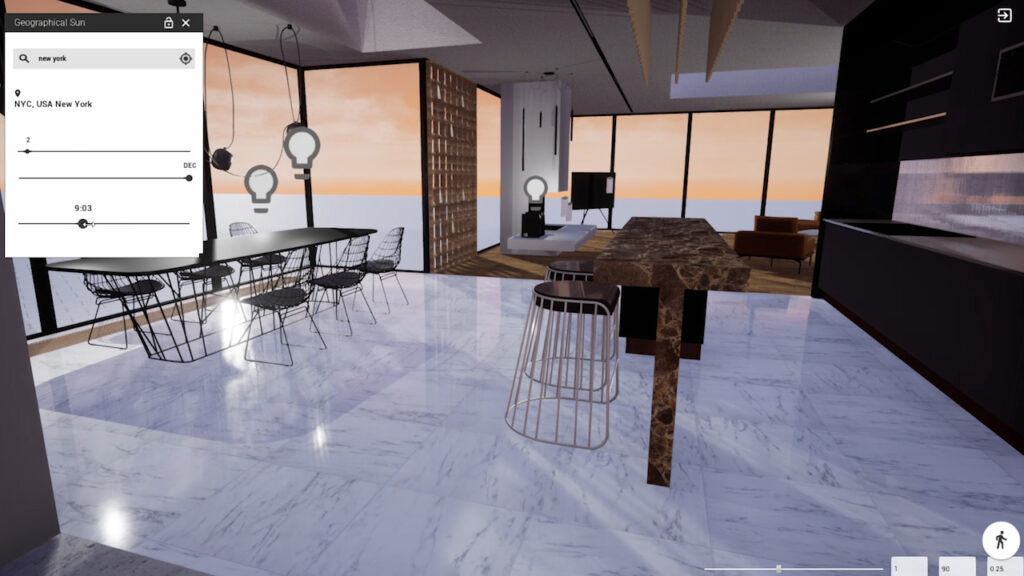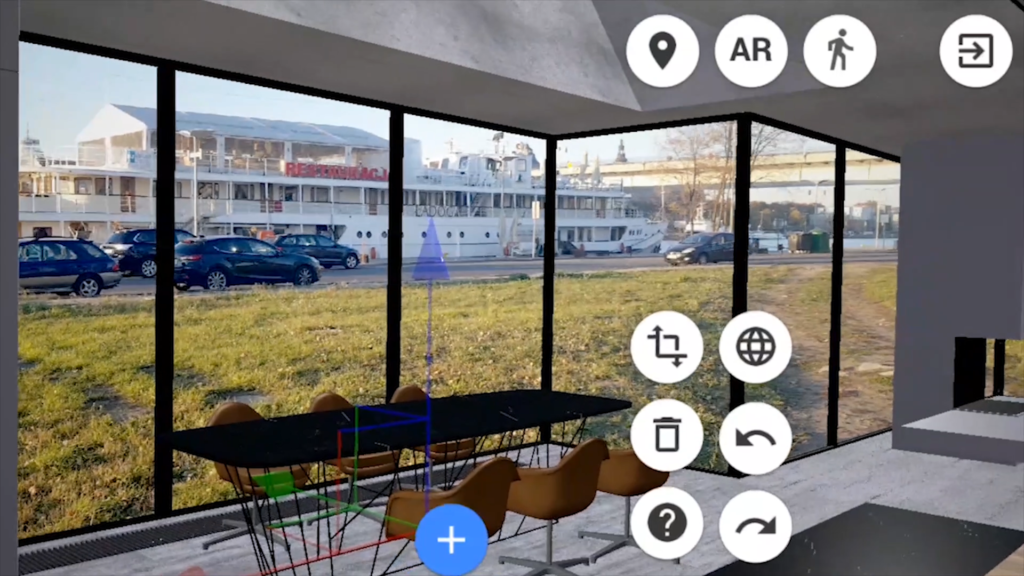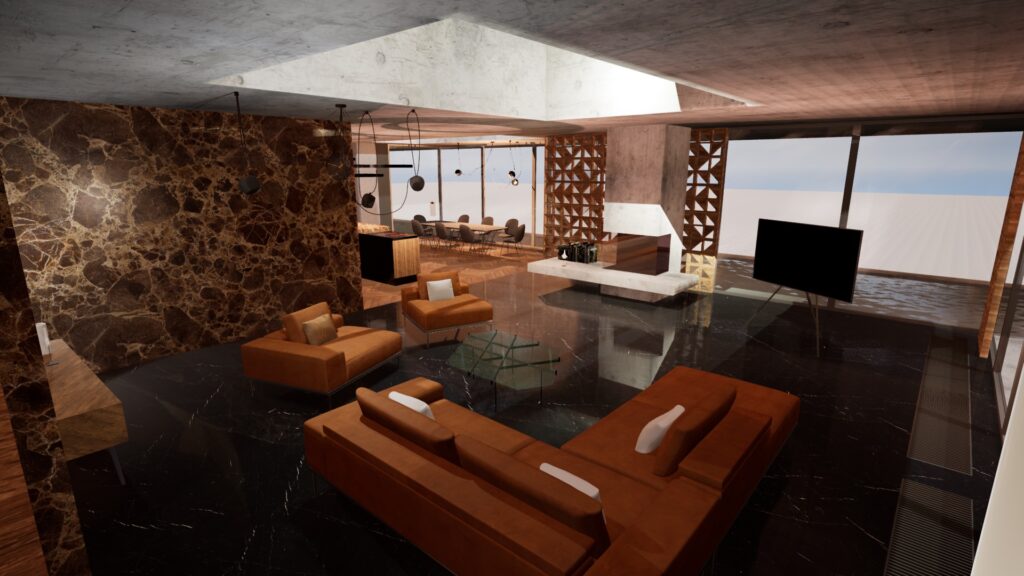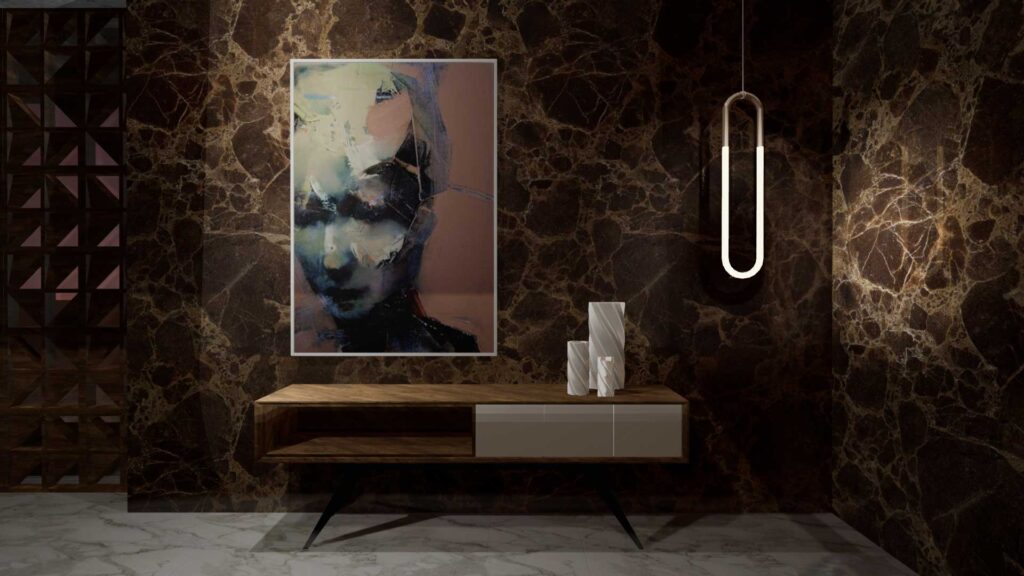Challenge:
- Traditional 3D visualization methods often fall short in fostering seamless collaboration, relying on static images or clunky software that limits user interaction.
- Disseminating large 3D models for review and feedback can be cumbersome, hindering efficient communication among stakeholders.
- Professionals often require different levels of access and interaction with 3D data, necessitating a flexible approach to software delivery.
Solution:
- Virtualist embraces a multifaceted approach to collaborative 3D visualization, offering a suite of tools that empower teams to explore and modify models together.
- The platform leverages cutting-edge technologies like Augmented Reality (AR) and Virtual Reality (VR) to create immersive experiences, allowing users to interact with 3D models in their real-world environment or a virtual space.
- To cater to diverse user needs, Virtualist offers both cloud streaming for accessibility from any web browser and dedicated desktop applications for users requiring advanced features and performance.
- This hybrid approach ensures that users can access and interact with 3D models in the way that best suits their workflow and technical requirements.
Benefits:
- Enhanced Collaboration: Virtualist bridges the gap between physical and digital worlds, allowing geographically dispersed teams to interact with 3D models simultaneously, fostering better communication and faster feedback cycles.
- Improved Design Decisions: AR/VR capabilities enhance visualization and understanding of design concepts, leading to more informed decisions and a reduction in costly rework.
- Streamlined Workflow: Cloud streaming simplifies sharing and access to 3D models, eliminating the need for file transfers and compatibility issues. Desktop applications provide advanced tools for detailed analysis and manipulation.
- Increased Accessibility and Flexibility: The platform’s web-based access, combined with powerful desktop applications, provides users with unparalleled flexibility in how they interact with 3D data.
Results:






- Reduced Project Costs: Collaborative features minimize the risk of misunderstandings and improve decision-making, leading to reduced rework and streamlined project timelines.
- Enhanced Client Engagement: Immersive AR/VR presentations allow clients to experience designs virtually, resulting in higher levels of engagement and satisfaction.
- Improved Communication: Shared visualization fosters a collaborative environment where stakeholders can provide real-time feedback and contribute to the design process.
- Increased Innovation: Accessibility and ease of use, combined with the power of desktop applications, promote broader adoption of 3D visualization, leading to greater creativity and innovative design solutions.
Conclusion:
- Virtualist stands as a pioneer in collaborative 3D visualization, leveraging AR/VR, cloud streaming, and dedicated desktop applications to revolutionize how teams work with 3D models.
- By offering a comprehensive suite of tools and access methods, Virtualist empowers businesses to leverage the full potential of 3D visualization for greater efficiency, communication, and design innovation.